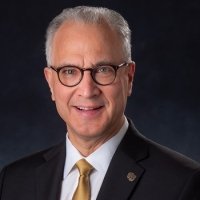In his address to Congress in 2015, the first by a Japanese leader, Prime Minister Shinzo Abe began pivoting his nation beyond its World War II past and subsequent pacifism to reach out to the world as a global leader. Current Japanese Prime Minister Fumio Kishida addressed Congress this week as the leader of a country that is now “standing shoulder to shoulder with the United States,” proclaiming, “You are not alone. We are with you.” Hopefully Kishida’s speech helps reverse the “undercurrent of self-doubt among some Americans about (America’s) role in the world.” Kishida helped Congress fully appreciate the magnitude of the threats that forced Japan to change course. While all presumably appreciate that although America should ask allies to do more, as Japan and others have done, as Kishida asserted, “the leadership of the United States is indispensable.”
The Challenge
Kishida highlighted the many threats democracies face “from those with values and principles very different from ours.” He outlined the shared challenges of climate change and advancing AI in a way that taps its promise and limits its perils. He pointed to the common threats of North Korea’s nuclear weapons, freedom suppressed through digital technologies, economic coercion, and “debt trap” diplomacy, whereby the economic dependency of nations is exploited and weaponized. Kishida repeatedly addressed the need to stand against “Russia’s unprovoked, unjust, and brutal war of aggression against Ukraine.” He noted that “China’s current external stance and military actions present an unprecedented and the greatest strategic challenge.”
Japan’s Transformation
Kishida explained how the magnitude of these threats to the “future stability of the Indo-Pacific region caused (Japan) to change (its) policies and (its) very mindset.” He outlined the many manifestations of Japan stepping up–nearly doubling its defense spending, adding counterstrike capabilities, joining sanctions against Russia, providing over $12 billion in aid to Ukraine, and strengthening its alliances in the region.
America’s Closest Ally
Kishida repeatedly asserted that Japan was America’s closest ally, its “tomodachi.” While the UK became America’s “special relationship” during WWII with Hitler as the biggest threat, today Japan has a rightful claim to asserting that it is America’s most important partner. Its ramp up in defense spending will rank it only behind the US and China. It hosts more US troops on its soil than any other nation. As Kishida made the case, “Japan is the number one foreign direct investor in the US…creating almost one million American jobs.”
Significant Steps
Among the significant deliverables announced during his trip included an agreement to modernize the two countries’ handling of command-and-control operations, an integrated missile defense network among Australia, the US, and Japan, and the possibility of Japan joining Australia, the UK and the US in Pillar II of the AUKUS agreement.
Amid Kishida’s discussion of how the US and Japan need to lead together during this time when “our world is at history’s turning point,” there were lighter moments in his speech. Recalling watching the Flintstones when living in Queens, New York, during his youth, he professed never figuring out how to translate “yabba dabba doo.” If Americans truly understand how beneficial Japan’s transformation is for helping preserve global peace in prosperity, we would join together in a hearty “yabba dabba do.”
Author


Wahba Institute for Strategic Competition
The Wahba Institute for Strategic Competition works to shape conversations and inspire meaningful action to strengthen technology, trade, infrastructure, and energy as part of American economic and global leadership that benefits the nation and the world. Read more

Explore More
Browse Insights & Analysis
US Inaction Is Ceding the Global Nuclear Market to China and Russia

Promoting Convergence in US-Brazil Relations


